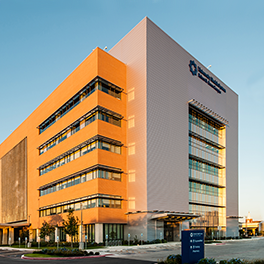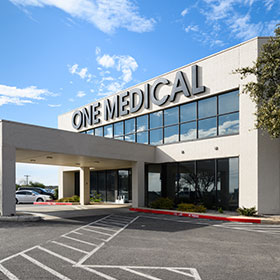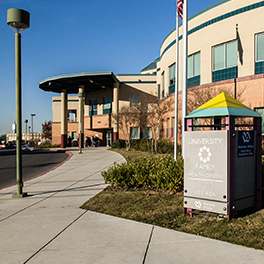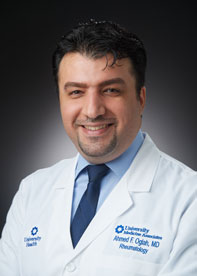Rheumatology Specialists in San Antonio
We work closely with other specialists at University Health to coordinate all aspects of your care. From radiologists and pharmacists to dietitians, we provide a multi-specialty team to guide you from your very first question to your ongoing arthritis care.
Rheumatology Conditions We Treat
- Gout
- Lupus
- Myositis
- Osteoarthritis
- Psoriatic arthritis
- Rheumatoid arthritis
- Sjogrens
- Vasculitis
Causes and Risk Factors of Arthritis
Arthritis is commonly caused by wear and tear on the joints or when the immune system begins attacking the tissues in the joints. It can also be caused by an injury or an infection.
Some people are at higher risk for arthritis than others:
- Older people are more likely to develop osteoarthritis because wear and tear on the joints worsens over time. Older adults are also more likely to develop rheumatoid arthritis and gout than younger people.
- Women are more likely than men to develop rheumatoid arthritis. Men are more likely than women to have gout.
- Excess weight puts added pressure on the body’s joints, making overweight and obese people higher risk for arthritis.
- If arthritis runs in your family, you’re also at a higher risk.
- Suffering a joint injury raises your risk of developing arthritis in the injured joint later in life.
Besides maintaining a healthy weight and protecting your joints during sports and other activities, there’s not much you can do to prevent arthritis, and most forms of arthritis are not curable.
However, our rheumatologists are here to walk with you on your journey toward treatment and symptom management, helping you manage pain and regain movement in stiff joints so you can get back to your daily activities.
Types of Arthritis
Arthritis in the hands, knees, feet, elbows and other joints is common. Some forms of the condition can also affect other body parts, including the eyes, heart and skin. Because there are more than 100 types of arthritis, our rheumatologists must have broad knowledge of these autoimmune and inflammatory arthritis diseases.
Osteoarthritis
Osteoarthritis occurs after much wear and tear on the cartilage in your joints. When cartilage begins to wear away, there’s nothing to cushion the joint, and then bones begin to grind together when you move. That’s when you begin to feel pain and stiffness in the affected joint. Osteoarthritis usually shows up later in life, though an injury or an infection can trigger the condition at a younger age.
Psoriatic arthritis
Psoriasis is a chronic skin disease that causes red, itchy, scaly-looking patches on the body. People with psoriasis may later develop psoriatic arthritis, which has symptoms similar to other types of arthritis, such as pain, stiffness and swelling.
Rheumatoid arthritis
Also known as RA, rheumatoid arthritis is an autoimmune disease, meaning the body’s immune system begins to attack the joint, causing swelling and inflammation. Over time, the immune system may destroy the cartilage and bone within the affected joint.
Diagnosing Arthritis
Diagnosing arthritis begins with a physical exam. Your doctor will look for symptoms of arthritis, such as swelling, redness and warmth in that area. Your doctor will also ask you about pain and check how well you’re able to move the affected joints.
If your symptoms indicate you might have arthritis, your doctor will recommend additional tests. Lab tests are often the first step. Your doctor may want to analyze joint fluid, blood and urine to help determine what type of arthritis you have. Depending on what these analyses show, more tests may be needed.
While osteoarthritis and other forms of arthritis can be diagnosed with imaging tests and blood tests, diagnosing rheumatoid arthritis is often difficult because its symptoms are similar to those of many other types of diseases. If your doctor suspects rheumatoid arthritis, lab tests and imaging may be ordered to confirm your diagnosis. Imaging tests and lab work may be used to track the progression of the disease over time.









